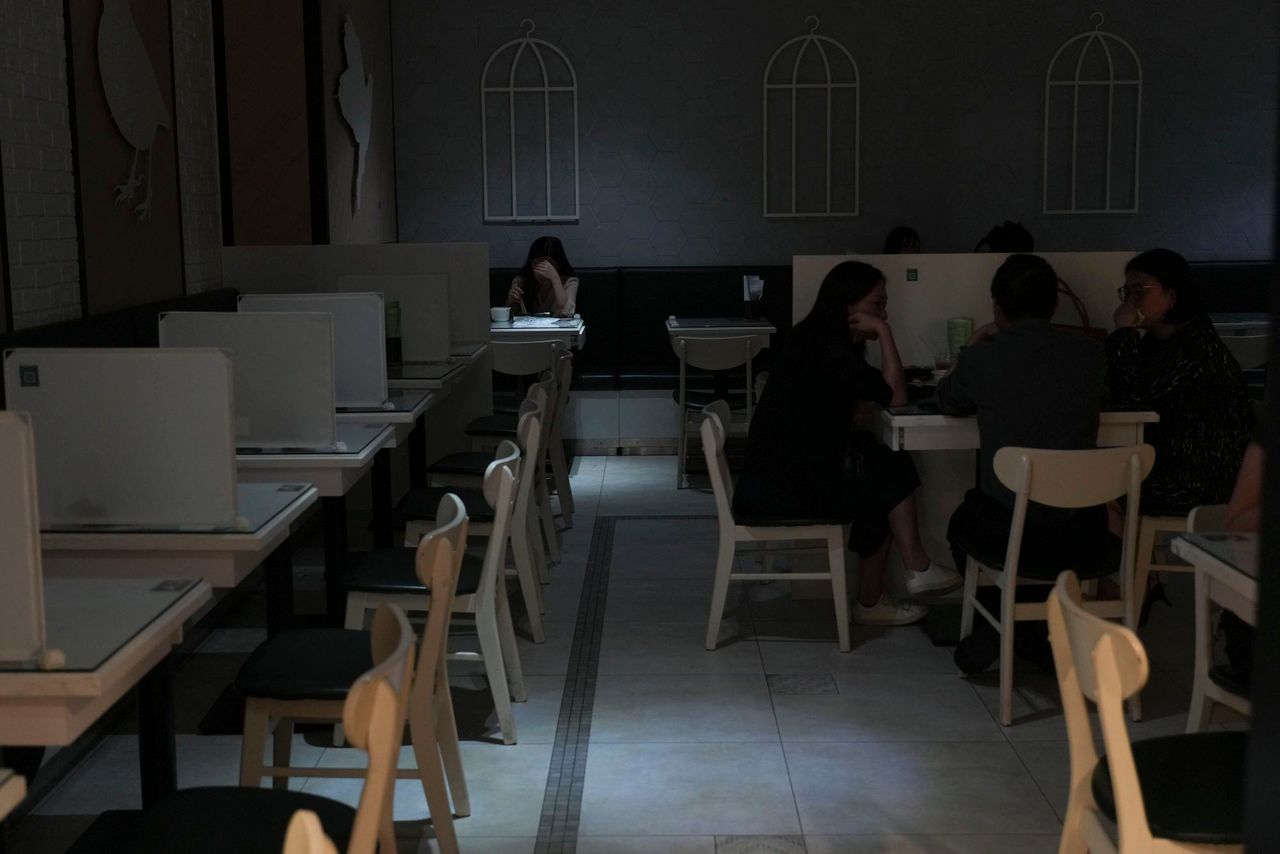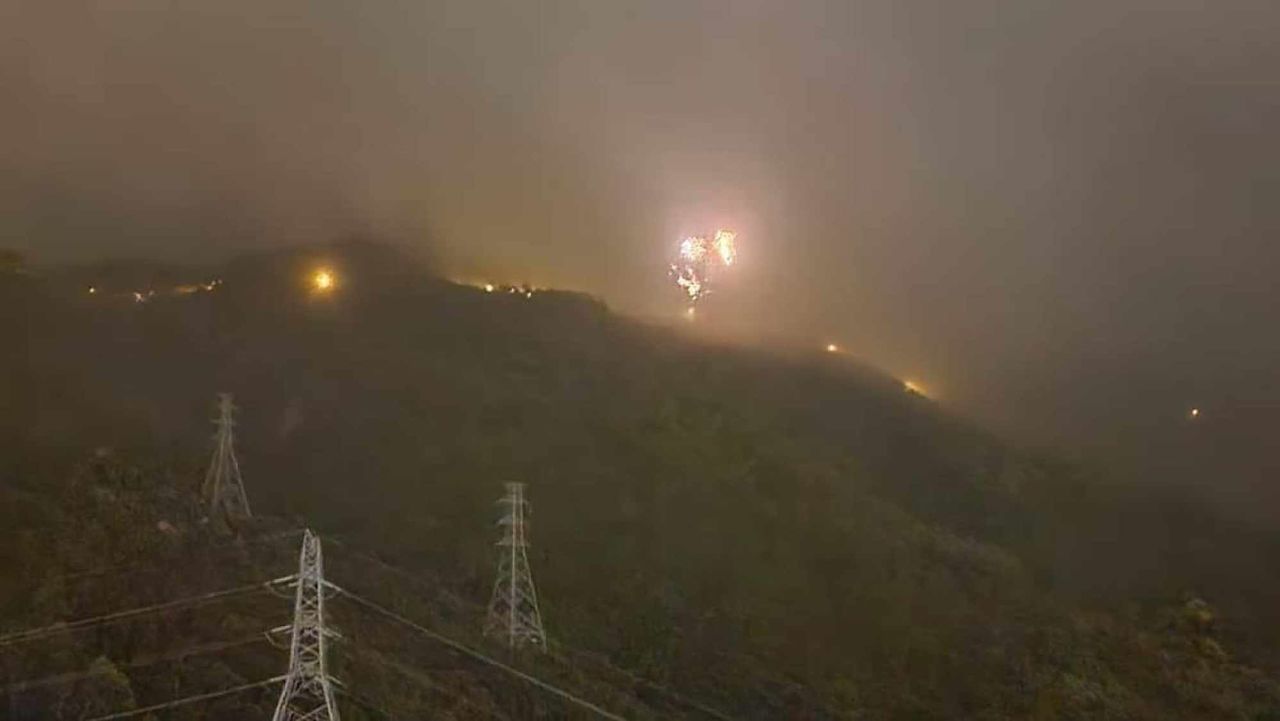Hong Kong News

Hong Kong’s environment minister vows review of profit scheme for power utilities
Hong Kong’s environment minister has pledged to review the permitted profit levels allowed for the city’s two power companies after major blackouts left tens of thousands of families in the dark.
In a panel meeting at the Legislative Council on Monday, Secretary for Environment and Ecology Tse Chin-wan also said authorities would consider amending the Electricity Ordinance to strengthen the accountability of the energy providers.
The meeting came ahead of the government’s interim review with CLP Power and HK Electric on their respective “Scheme of Control” agreements, which aim to ensure safe, reliable and affordable electricity supply in the city.
 A restaurant at the Hong Kong MTR station left in the dark after a power outage in April.
A restaurant at the Hong Kong MTR station left in the dark after a power outage in April.
The current agreements took effect in 2018 and will expire at the end of 2033. Authorities have planned to conduct the interim review with the two companies within this year.
Under the agreements, CLP Power and HK Electric are allowed to enjoy a guaranteed return rate of up to 8 per cent based on their electricity generation assets.
Tse on Monday told lawmakers both the government and the two power utilities had the right to amend any part of the agreements and that authorities were preparing for negotiations.
“We will discuss with the two power companies in the interim review, including lowering the permitted rate of return, expenditure monitoring, improving transparency and the reward-and-punishment system,” he said.
“But any proposed amendments to the agreements must be agreed upon by the government and the power companies before being implemented.”
Tse also stressed that the government would “act in the interests of the public”.
CLP Power and HK Electric have faced criticism after two power outages in the city in April and last June.
About 160,000 households in New Territories West were affected by a two-day blackout involving CLP Power last June, triggering class suspensions and disruptions to hospital and rail services.
 Flames on an electricity pylon on Kowloon Peak light up the hillside.
Flames on an electricity pylon on Kowloon Peak light up the hillside.
A 48-minute power outage hit parts of Hong Kong Island in April, affecting some 44,000 families and causing traffic lights to malfunction. HK Electric said it was due to staff accidentally connecting a spare cable.
But both power utilities were said to be entitled to an additional 0.015 per cent of the reward, as long as they could maintain a yearly average reliability rate of 99.996 per cent or above.
During the panel meeting, lawmaker Edward Leung Hei, of the Democratic Alliance for the Betterment and Progress of Hong Kong, suggested authorities amend Article 12 of the Electricity Ordinance, which states that safety should be ensured when the companies connect power supplies to a fixed electrical installation.
“Now when we see accidents happen, the government appears to have no power to hold them responsible. We hope the government can be equipped with more power and ways to keep them under check,” he said.
Responding to Leung, Tse said: “Our investigation is also along the direction of Article 12, about whether [HK Electric] breached the law. We’ll also consult the Department of Justice.
“After the investigation, if we find out that amending the law is beneficial to us, we’ll make a proposal. It’s in our consideration.”
Other lawmakers said the city should import electricity from mainland China to enhance competition amid increasing energy prices.
But Tse argued that electricity bills made up about two per cent of an average household’s expenditure in the city, compared with six to 10 per cent in other places which were more susceptible to price fluctuations and saw costs accounting for a fifth of expenses when the energy crisis was at its peak last summer.
Judy Chan Kapui, of the New People’s Party, recommended that CLP Power and HK Electric set some key performance indicators, such as building more electric vehicle recharging facilities, so that they could better fulfil their social obligations.
NGO Friends of the Earth called on the government to encourage the use of renewable energy in the interim review for “long-term sustainability and stability”.
“Hong Kong has to increase the share of renewables in the energy mix at a much greater scale and faster pace,” the green group’s chief executive Jeffrey Hung Oi-shing said, adding that the city had to address an urgent need for decarbonisation of its power grid.











